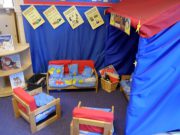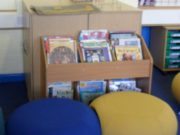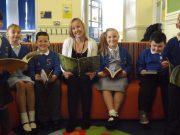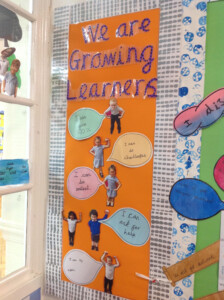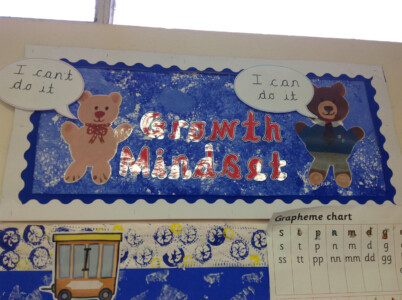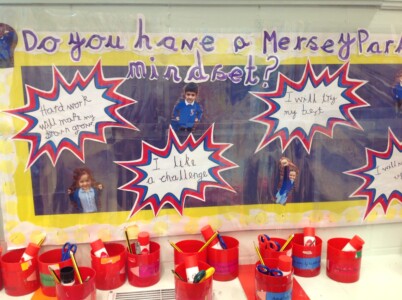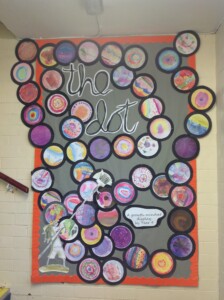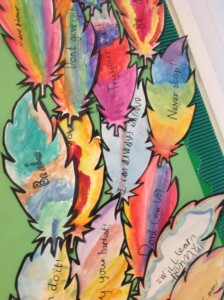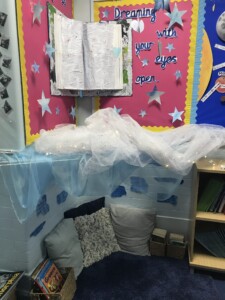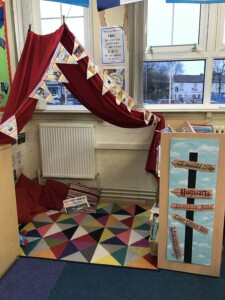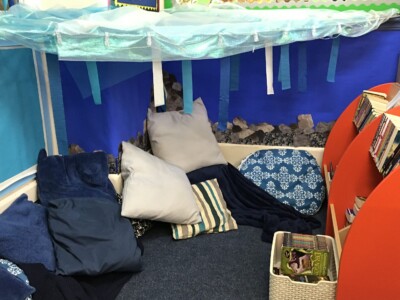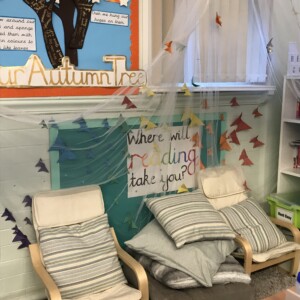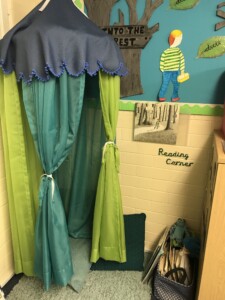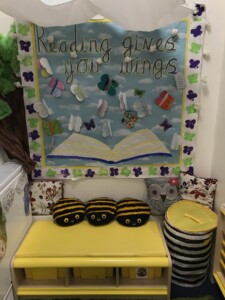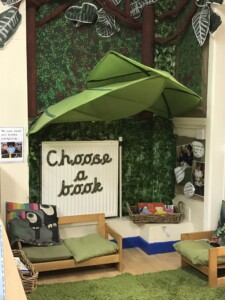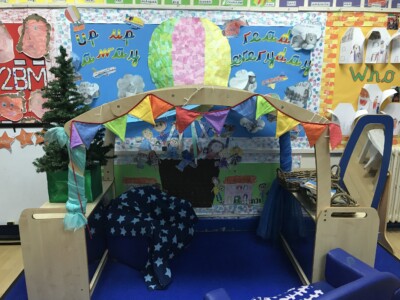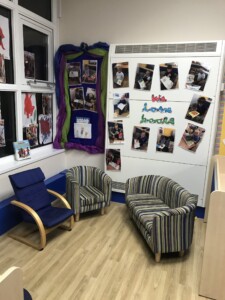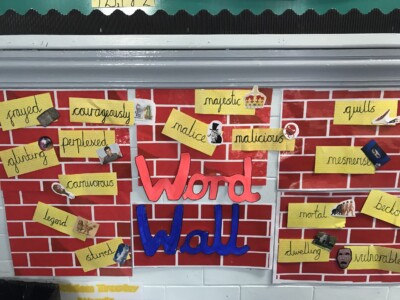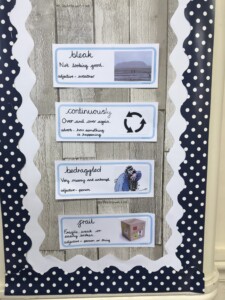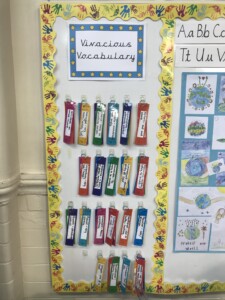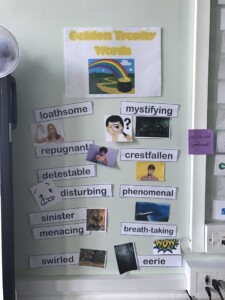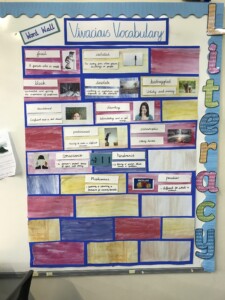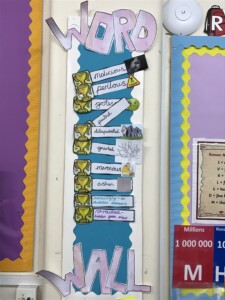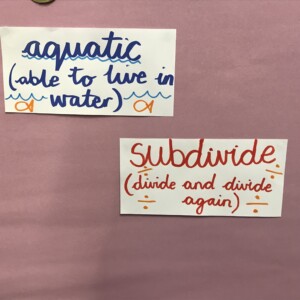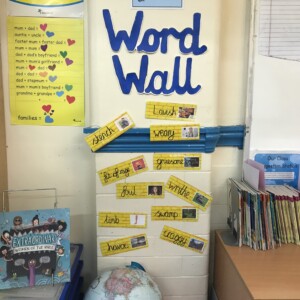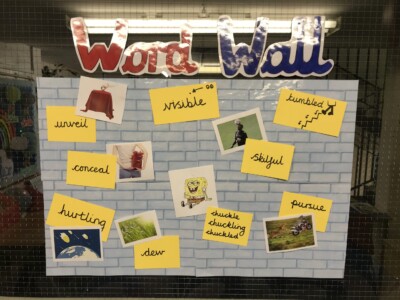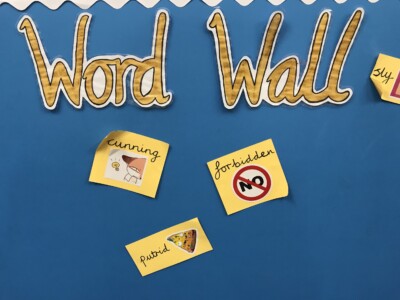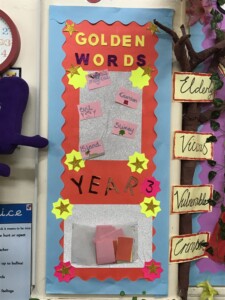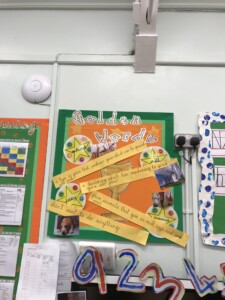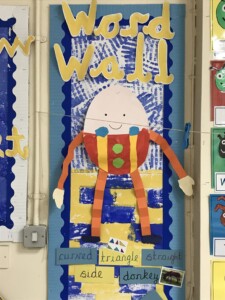Reading at Mersey Park
Please click the link below to find out about how we teach reading at Mersey Park.
Reading Progression at Mersey Park
Our Aim
As a school we are committed to continually raising standards in Literacy. Our aim is to ensure the highest standards of reading and literacy for every child by providing them with the skills necessary to read with confidence, fluency, understanding and enjoyment.
The teaching of reading at Mersey Park Primary School
- Our school identifies the two key phases in reading development: learning to read and reading to learn. Teaching strategies are carefully employed that recognise children’s needs in each phase.
- Positive attitudes to reading are fostered through carefully designed teaching activities and classroom provision. The need for children to enjoy reading and actively choose to read for different purposes informs this provision.
- Teachers use a balanced approach. Teaching activities promote children’s abilities to decode written language at word and sentence level, and to search for meaning in the text. Teaching activities also reflect the need for children to engage imaginatively with texts, empathise with characters and develop their specific interests in the world around them through their reading.
- A variety of teaching strategies are employed to teach shared, guided and individual reading. We also use the VIPERS approach to directly teach focussed comprehension skills. This approach links directly to the reading domains of the National Curriculum.
- The teaching of reading is embedded within meaningful contexts. We teach all children the skill of reading by providing access to a wide range of high quality narrative and non-narrative texts. Texts, with challenging vocabulary are carefully chosen to support our ambitious curriculum.
- Children start to read with fully decodable books as they learn the sounds. These include mainly Big Cat Collins books supported by Oxford Reading Tree, Rising Stars and Letters and Sounds Junior Learners. Children will continue reading fully decodable books until their phonics knowledge is completely secure. Then the children will read a broader range of graded reading materials including carefully chosen high quality novels. These more challenging texts help our children to experience a range of genres and writing styles. They provide different sentence structures, vocabulary, layouts and contexts and help our children to experience a wealth of texts and begin to form opinions and preferences in literature. Books are carefully chosen from a range or authors to reflect our heritage and our diverse society.
Early Readers
“We read to know we are not alone” C S Lewis
From the start of their school experience, children are immersed in a world of literature with books chosen to stimulate their imagination. The children are taught to tune into sounds which they hear in both the classroom and outdoor environment. They learn how to listen through story, games, rhymes and talk. Children are introduced to the conventions of books, reading from left to right, regarding the illustrations as an integral to the story, turning the pages singly etc. The use of stories and rhymes is key at this point. Children are encouraged to act out well known tales and join in with a repertoire of nursery rhymes. There is a very strong focus on listening to familiar stories and puppets and role play help to bring these alive. We provide a reading rich environment beginning with the children’s own names and including the use of captions, labels and instructions. In Foundation One high quality children’s story books and Nursery Rhymes are sent home regularly with helpful questions which allow parents to be involved in their child’s learning. In Foundation Two, fully decodable books which have been already read with the teacher in school are then sent home for the children to practice applying their phonic knowledge to their reading. Parents communicate with school through comments in a reading log. Throughout the week children are also given the opportunity to take home a book to share with an adult and read for pleasure. They also have continual access to our eBooks which match our phonics teaching and our daily reading practice sessions.
Our Reading Practice sessions provide an opportunity for the children to apply and embed their phonics knowledge. They are based on a three – session programme; Decoding, Prosody and Comprehension. Throughout this early reading phase, the teaching and application of phonics is key. The Little Wandle Letters and Sounds revised scheme is used to teach phonics (Please see Phonics
policy for more information). If children do not make sufficient progress or reach the expected level of attainment during this stage of reading, they are given extra reading support. This could be in the form of additional reading practice or through a targeted reading/phonics intervention. Their progress will continue to be closely tracked.
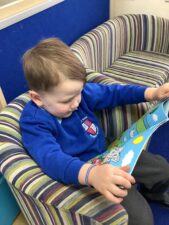
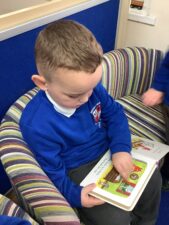
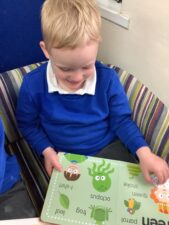
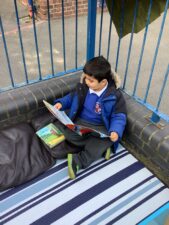
Developing Readers
“I am not afraid of storms for I am learning how to sail my ship.” Louisa May Alcott, Little Women
As the children progress in their reading they build a growing sight vocabulary. This and their ability to segment and blend sounds develops their reading skills. At this point they start to become readers for meaning and have more of an understanding of what they read. Children are taught to retell, sequence, predict and question as part of the reading process. Guided reading takes place regularly throughout the week with focus groups receiving additional reading practice sessions. Children are carefully grouped according to ability; each group has at least two guided sessions per week with either the teacher or teaching assistant. Comprehension work becomes a key feature of both guided and independent reading. Children are given fully decodable books until they are fluent readers. Sessions are used to reinforce phonic knowledge and blending, to practice prosody and for comprehension skills. The children are introduced to the VIPERS approach and are helped to develop finely tuned comprehension skills including: retrieval, inference, predicting, sequencing, summarising and the understanding of new vocabulary. Children are taught how to find evidence in a text and begin to explain their ideas to show their understanding. Each child continues to take home a levelled reading scheme book with a reading record. Parents and carers are expected to enter into a dialogue with school through this log which is an extremely valuable tool. Children continue to receive daily structured phonics sessions until their phonics knowledge is secure. If children do not make sufficient progress or reach the expected level of attainment during this stage of reading, they are given extra reading support. This could be in the form of additional reading practice or through a targeted reading/phonics intervention. Their progress will continue to be closely tracked.
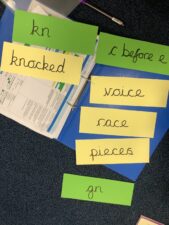
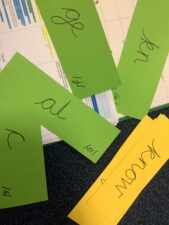
Fluent Readers
“So please, oh please, we beg, we pray,
Go throw your TV set away,
And in its place you can install
A lovely bookshelf on the wall.”
Roald Dahl Charlie and the Chocolate Factory
Once the children can read fluently and do not need fully decodable books, our reading scheme books are predominantly taken from the Oxford Reading Tree Scheme. Children continue to take home at least one reading book and are still heard read during guided reading sessions. More complex reading comprehension skills are increasingly taught and deepened through our whole class VIPERS approach and will now cover a wide range of activities including answering and explaining questions related to the text, using inference and deduction, predicting, summarising and discussing language meaning, choice and effect. The children have experience of completing more challenging comprehension tasks alongside the teacher in whole class shared reading sessions and then independently. Once the children have progressed through the ORT scheme and are fluent, confident readers they are then able to choose their own books which are still carefully monitored by the teacher for quality and challenge. If children do not make sufficient progress or reach the expected level of attainment during this stage of reading, they are given extra reading support. This could be in the form of additional reading practice or through a targeted reading/phonics intervention. Their progress will continue to be closely tracked.
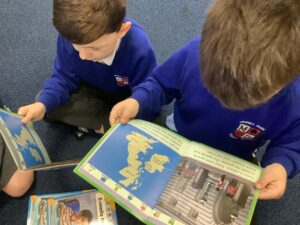
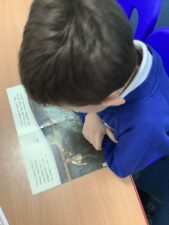
Strategies used to teach reading
As a community of readers we expect all adults to model and communicate their love of reading. We strive to provide every opportunity for children to read independently, paired, as a group or a whole class.
Reading Practice/Guided Reading
Reading Practice/Guided reading is used throughout the school as a key teaching strategy. The sessions are carefully planned and cover a range of Assessment Foci and Reading Domains. Groupings are as small as possible due to extra staffing and remain flexible and are constantly adapted to the needs of the children within the group.
Guided reading will be used to:
- Apply and embed phonics teaching
- Model and teach Prosody
- Teach and embed new vocabulary using images to help deepen their understanding
- Teach model and practise key comprehension strategies – prediction, questioning, clarifying, summarising and activating prior knowledge
- Provide regular ongoing individual assessment opportunities, ensuring all sessions continue to meet the group’s learning targets and needs
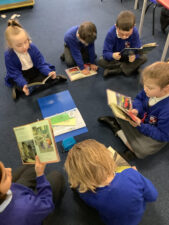
Shared Reading
Shared Reading allows the teacher to demonstrate how to read a wide variety of different genres and text types and show that reading is a pleasurable and informative experience. Shared reading gives access to challenging texts for all our pupils and provides a secure environment for learning to read. It also provides a context for the explicit teaching of reading comprehension skills and enables teachers to model the skills and strategies used by effective readers. Once again, the whole school VIPERS approach is an integral part of these sessions. A whole class shared reading text is always a
vital part of our science and foundation subject lessons. Theses texts are carefully chosen and form part of our foundation subject planning. Key vocabulary is highlighted and revisited within these sessions.
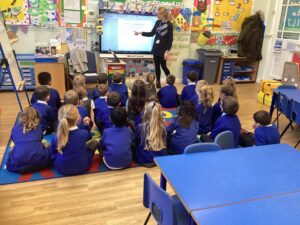
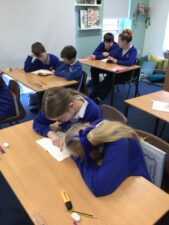
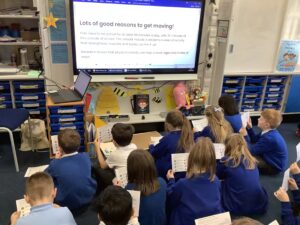
Independent Reading tasks
Teachers set reading tasks for pupils that require them to read without teacher support. These tasks are accountable and might require a written response.
Independent reading will be used to:
• Promote enjoyment of reading
• Develop and consolidate comprehension skills
• Provide a meaningful context for the application of reading skills and knowledge
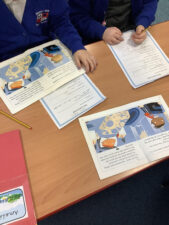
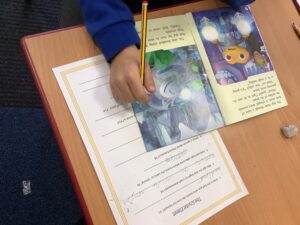
Reading Materials
Our school uses a range of high quality, up-to-date resources for teaching reading.
A Reading scheme:
For ‘Early Readers’ we predominantly use the Big Cat Collins scheme. Other fully decodable books are also used to give opportunities for phonics knowledge application. The Project X Code (fully decodable) reading intervention is also used in lower KS2 where appropriate. Only when the children are secure and fluent in their reading, do they move to our Oxford Reading Tree scheme. This scheme is supplemented in places to ensure a good balance of quality literature.
Free Choice books:
Our communal libraries and class book corners are engaging and well organised. Children and class teachers are also directly involved in the purchase of their new books – often suggesting books by a familiar author or a book on a similar theme. Our book corners aim to reflect our diverse society.
Whole school Reading Spine:
This range of books have been carefully selected to ensure that our children are exposed to a wide range of quality genres and authors. Each year group is allocated a number of books to read throughout the year. These books are intended to be read aloud by the teacher, used as a shared reading focus or as a whole class reading session. The teacher uses these sessions to model the reading process and teach the children to predict, reflect and ponder as a reader. Many of our ‘Talk for Writing’ projects or ‘Power of Reading’ units begin with these memorable books. The spine is reviewed regularly in consultation with colleagues and pupils. Class novel time is highly valued and a protected time each day.
We carefully map out the books that each child will encounter every year across the curriculum. This allows us to track progression and ensures that children are experiencing a wealth of different high quality literature. Each class has a ‘Reading Journal’ and a ‘Reading Journey’ display to celebrate and remind them of these texts.
We ensure that each classroom has an inviting book corner with a carefully selected range of books. Each classroom also has a number of non-fiction books and reading materials related to their cross curricular topics. We also have ‘Outdoor Libraries’, ‘Reading Ambassadors’ and school librarians. Children are actively involved in choosing new books for the school and books are regularly awarded as prizes in school.
Additional Resources:
- Power of Reading books to engage children and inspire drama, art and writing opportunities.
- Bug Club and Harper Collins eBooks for online reading. Through these, the children can access exciting interactive books which encourage reading for pleasure. The books are lively and inviting and aim to particularly encourage any reluctant readers.
- Termly loans from the School Library Service to support topic and science learning.
- A poetry spine is also in place to ensure that children are exposed to a wide range of both modern and classic poems. There is a strong focus on reciting poetry aloud.
Assessment in Reading
Teachers continually assess reading and track children’s progress. Phonics testing is frequent and rigorous – please see our phonics policy for more detail. Reading Practice/Guided reading sessions and VIPERS sessions are carefully planned to meet the needs of the group and develop all aspects of their reading. Additional diagnostic reading assessments are used where applicable. These include the PHab, YARC and the NGRT test. The results are analysed and used to inform further teaching and interventions. There are additional termly assessments in Year 3,4 and 5 using the standardised NTS assessments. Gaps and misconceptions from these tests are then covered in subsequent guided reading sessions. Past SAT’s papers are used for assessment purposes in Year 2 and 6. Running records and fluency rubrics are also used where appropriate to assess individual reading. Progress and attainment in reading is a key part of half termly Pupil Progress meetings. In Key Stage 2 some children will still require phonics teaching and ongoing assessment. This additional support is provided in small groups.
Home Reading
Home reading is essential and is at the heart of our homework contracts with pupils and parents. Early and Developing readers are expected to read at home to an adult daily. This is recorded within their reading record log and monitored closely by class teachers and teaching assistants. Our more fluent readers in KS2 are expected to read at home independently or to an adult regularly and update their reading record log. Regular home reading and updated reading logs are an essential part of our homework expectations. Regular reading is also essential for success in the whole school ‘Homework League’.
Celebrating Reading
“I do believe something very magical can happen when you read a good book” J K Rowling
- Whole school regular ‘Learning Buddy’ sessions allow children to read with a buddy from another year group. The older child is taught how to help the younger children to decode words and discuss the book they are reading. They are taught how to model prosody and pace and help the younger child to comprehend the book they are reading. The sessions are planned alongside special events and themes in school.
- Word Wall quadrants/Word Boxes and colour coded vocabulary cards support vocabulary acquisition throughout the curriculum with an emphasis on children acquiring more vocabulary and being able to use it in different contexts.
- The school has good links with our local library and always takes part in the Wirral Summer Reading Challenge. We also make good use of the School Library Service to provide non-fiction books to support topic and science lessons as well as whole class sets of fiction books to support the reading spine.
- A whole school Mersey Park Mindset approach ensures that children are praised, encouraged and commended for both effort and improvement in reading. This allows children to become resilient readers and respond positively to challenging texts and unfamiliar vocabulary.
- Our yearly Poetry Week gives children the opportunity to read, recite, write and perform poems in preparation for a sharing assembly at the end of the week.
- World Book Day is celebrated within school and has included author visits, bedtime story day and decorate a hat. Past events include competition for each class to decorate their door in the style of a treasured book.
- Whole School celebrations and productions place a strong emphasis on the performance of poems and scripts.
- Children regularly see adults within school as readers with teachers sharing their own love of particular books, poems and authors.
Achieving our aims
As a school we will persistently strive to:
- Expose our children to a stimulating range of books and texts.
- Provide a range of reading experiences including individual, paired, whole class shared and guided reading opportunities.
- Involve and encourage parents in the reading process as much as possible.
- Ensure reading is both structured and enjoyable.
- Use record keeping and regular assessment to monitor progress.
- Provide timely support for children who are at risk of falling behind or who have Special Educational Needs.
- Supply engaging texts that are age related with appropriate yet challenging vocabulary
- Encourage independence through the development of a variety of reading skills.
- Challenge our children to become confident readers with a true love of books.
- Present reading as a lifelong skill, something to treasure and not to fear or be seen as a chore.
Here at Mersey Park Primary we like to ensure you can access as much information as possible. So here is some useful information to information on different areas of Reading, simply click on the title that you would like to read:
We can read in our dens, with an adult, or in one of our three library areas!
At Mersey Park we value reading and aim for all our children to become enthusiastic, lifelong readers. As well as the daily teaching of reading we have many other reading activities that run throughout the year.
- A whole school Mersey Park Mindset approach ensures that children are praised, encouraged and commended for both effort and improvement in reading.
- Whole school regular ‘Learning Buddy’ sessions allow children to read with a buddy from another year group. The sessions are planned alongside special events and themes in school and are always something that the children look forward to.


- Parent Readers are invited in to share reading for pleasure with their children.
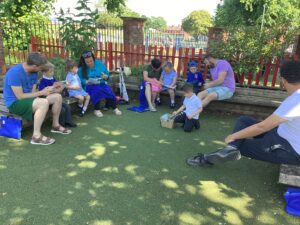
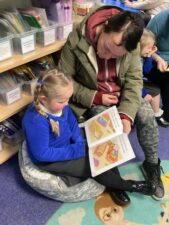
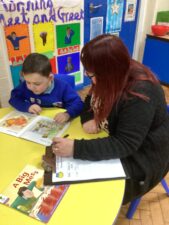
Each classroom has an inviting, colourful book corner. These are well resourced and the books are changed regularly to maintain interest and to match new topics. Our two school libraries are well stocked and used regularly by the children.
Word Walls
- Our use of Golden Words, Word Walls and Word Pots in all aspects of literacy help the children to understand and embed new and challenging vocabulary.
How can you help at home?
All our children from Foundation 1 through to Year 6 will be provided with a home reading book. This will be chosen from our reading scheme. The children progress through the levels, developing fluency and confidence and then move on to free choice reading books (usually Years 5 & 6.)
Top Tips
- Try to read each day
- Choose a quiet time and a quiet place
- Please communicate with school and record any comments or concerns in your child’s reading log.
- Try to make it fun by playing games or setting mini challenges
- Talk lots about the book and check that your child underhttps://www.youtube.com/watch?v=I-zISnJ-oao&authuser=0stands the meaning of any new words.
- Re-read familiar books for fluency, confidence and pleasure.

What to do if your child is struggling with their reading
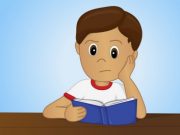
- Sound out the word using phonics knowledge (parent workshops are provided to help with this in Foundation stage and Key Stage 1)
- Help reinforce tricky words which cannot be sounded out and just need to be read on sight Eg what, said, me
- Read around the word or read on to the end of the sentence and then return to the word. Can you make sense of it now?
- Look for picture clues to help you make a sensible guess.
- Please arrange to meet with your child’s teacher to discuss your concerns.
Stephen Fry explains how using subtitles while watching the television can be a useful tool for improving your child’s reading skills while at home:
Help your child’s reading with tips, fun activities and free eBooks:
www.oxfordowl.co.uk
http://www.starfall.com/
http://www.bookadventure.com/Home.aspx
